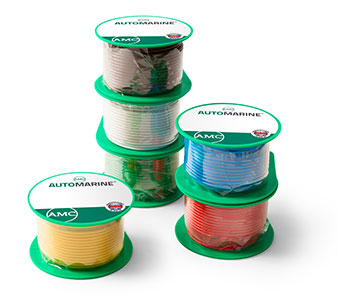Electronics.
Thin Wall refers to the thinner layer of insulation around the cable strands. This harder quality insulation is achieved with less material but results in superior insulation properties.
In addition, Thin Wall cables are generally constructed from a larger number of copper strands with a smaller diameter. This gives more flexibility and better resistance to vibrations.
Most vehicle manufacturers specify that Thin Wall should be used in their designs. This is because the engines in those vehicles are increasingly operating at higher temperatures to improve efficiency.
In addition, weight and space are becoming increasingly important for vehicle designers.

Because Thin Wall contributes to a significant reduction in diameter and weight, a number of advantages can be recognized:
- Cost savings: less expensive than the equivalent standard PVC cables
- Space saving: creates space for all new gadgets expected in modern vehicles
- Eco friendly: less waste compared to standard PVC cables
The higher melting point of the insulation, up to 105ºC, meets the requirements of modern vehicles. In comparison; the standard PVC cable is only resistant to 70ºC. In addition, the Thin Wall cable is denser and more resistant to abrasion, impact damage and moisture due to the harder quality insulation.






